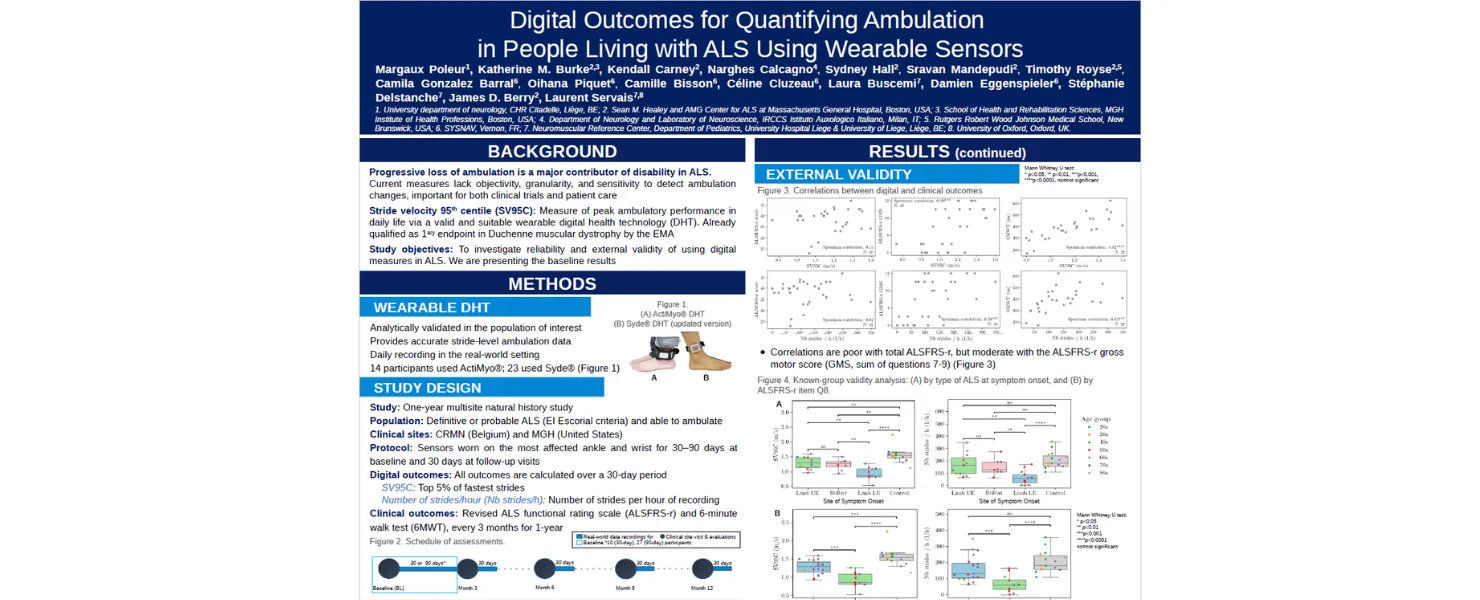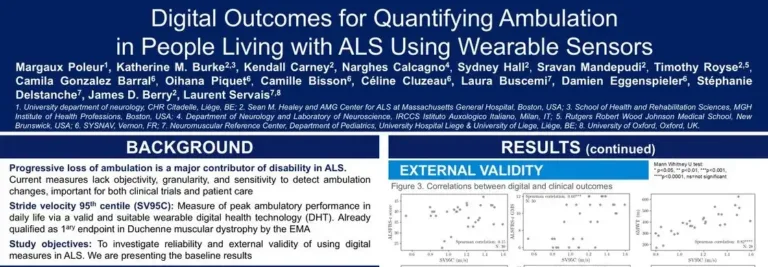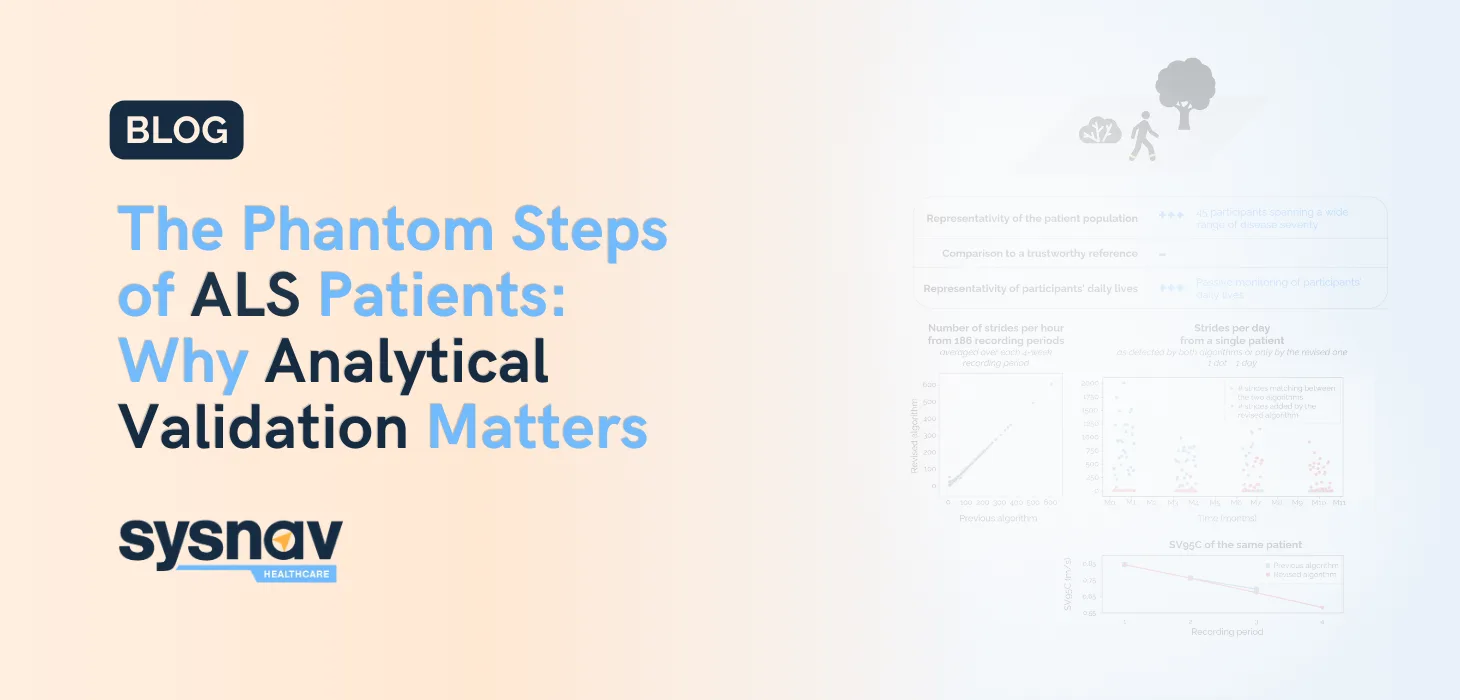Sysnav Healthcare presented new findings from the Acti-ALS Study, a collaborative effort with CHU Liège (Belgium) and Massachusetts General Hospital (USA) authored by Professor Laurent Servais and Professor James Berry at the ENCALS 2025. The study explores the potential of mobility biomarkers as sensitive, real-world clinical outcomes for individuals living with ALS.
Our poster, which received a Best Poster Award, reported promising baseline results that support the use of continuous, sensor-based measures to complement traditional functional scales in ALS research and clinical trials.
Why Rethink Functional Measures in ALS Clinical Research?
Conventional tools such as the ALS Functional Rating Scale (ALSFRS-R) remain central in ALS trials. However, they may be limited in detecting early or subtle changes in functional status. Digital endpoints derived from continuous, real-world data collection offer a complementary approach, potentially increasing sensitivity while reducing reliance on in-clinic assessments.
The Acti-ALS Study
The Acti-ALS Study investigates the utility of digital biomarkers as clinical outcomes in ALS. Conducted in partnership with CHU Liège (Belgium) and Massachusetts General Hospital (Boston, USA), the study aims to validate the sensitivity and reliability of Syde-derived digital endpoints compared to traditional functional assessments.
Study Objectives are as follows:
- Evaluate the compliance, reliability, and validity of digital mobility measures collected via Syde technology
- Determine their sensitivity to detect early functional decline in individuals with ALS
- Compare digital endpoints to conventional assessments such as the 6-Minute Walk Test (6MWT)
Study Design and digital data collection in ALS Patients:
- Population: Individuals living with ALS
- Sites: CHU Liège (Belgium) and MGH (USA)
- Data collection: Continuous activity monitoring in real-world settings using Syde sensors
- Timepoints: Baseline, 30 days, and 60 days
Baseline findings presented at the 2025 ENCALS Annual Meeting show:
- High participant compliance was observed, with 97% adherence during the first 30 days and 90% between days 61 and 90.
- Digital mobility measures demonstrated excellent reliability, with intra-class correlation coefficients (ICC) exceeding 0.9.
- These measures showed strong to very strong correlations with the 6-Minute Walk Test (6MWT) outcomes.
- Known group validity was established, as the digital measures effectively distinguished bulbar-onset patients from both control participants and those with lower-limb onset.
- Sensitivity to change was demonstrated for SV95C, a digital gait-based biomarker, which detected functional decline between baseline and both 30-day and 60-day timepoints.
Conclusion: Digital Endpoints for ALS Progression in Clinical Trials
These findings support the potential utility of Syde-derived digital endpoints as sensitive, reliable measures of functional status in ALS. Continued data collection and analysis are underway to evaluate longitudinal performance and integration into clinical trials.
To learn more, download the poster here




